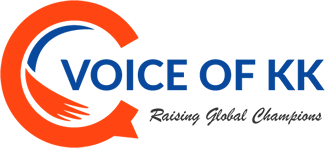Bridging the Skills Gap in Kenya: What Employers Want vs What Graduates Offer.
The skills gap in Kenya is a major barrier to employment. Employers struggle to find job-ready candidates, while graduates face long job searches. According to www.kariukikamau.com, closing this gap requires aligning education with market demands and emerging technologies like artificial intelligence (AI).
What Employers in Kenya Are Looking For.
Kenyan employers want more than degrees. They prefer candidates with real-world experience, digital literacy, and critical thinking skills. Today’s job market demands adaptability, problem-solving ability, and AI awareness.
Practical Experience and AI Knowledge.
Employers need graduates who understand workplace operations and modern tools. Exposure to AI-driven systems, data analytics, and digital platforms adds value. Candidates with internship experience and hands-on training often secure better opportunities.
Soft Skills That Stand Out.
Technical expertise must be balanced with strong soft skills. Employers look for teamwork, communication, leadership, and emotional intelligence. These skills help graduates collaborate in fast-changing, tech-driven environments.
What Kenyan Graduates Currently Offer.
Most graduates bring academic knowledge but lack practical experience. Some struggle with workplace communication, teamwork, and using new technologies. Others lack the creativity needed to solve complex problems.
Gaps in Digital and AI Skills.
AI is reshaping industries, but many graduates lack skills in machine learning, data analysis, and automation. This makes it harder for them to stay competitive in Kenya’s digital economy.
Challenges with Critical Thinking and Innovation.
Employers want independent thinkers, not just theory-based learners. Graduates often depend on rote learning. This limits their ability to innovate and handle real-world business challenges.
How to Bridge the Skills Gap in Kenya.
Bridging this gap requires collaboration between universities, government, and private companies. Education systems must adapt to future job market needs, including AI integration.
Introducing AI and Practical Learning in Education.
Schools should combine theory with practical training, AI projects, and digital workshops. Internships and apprenticeships can build workplace confidence and technical skills. Early exposure to AI tools will prepare students for future careers.
Building Soft and Digital Skills Programs.
Institutions should offer training on communication, leadership, and time management alongside coding, data analytics, and AI literacy. Boot camps and mentorships can help graduates adapt faster.
Improving Career Guidance and Industry Partnerships.
Career centers should guide students toward emerging sectors like AI, fintech, and green tech. Strong industry links and mentorship programs can help graduates understand real employer expectations.
Building a Future-Ready AI-Driven Workforce.
The skills gap in Kenya threatens youth employment and economic progress. By embracing AI and aligning education with market needs, Kenya can build a future-ready workforce. Collaboration, continuous learning, and innovation will close this gap and drive sustainable growth. For more insights visit www.kariukikamau.com





